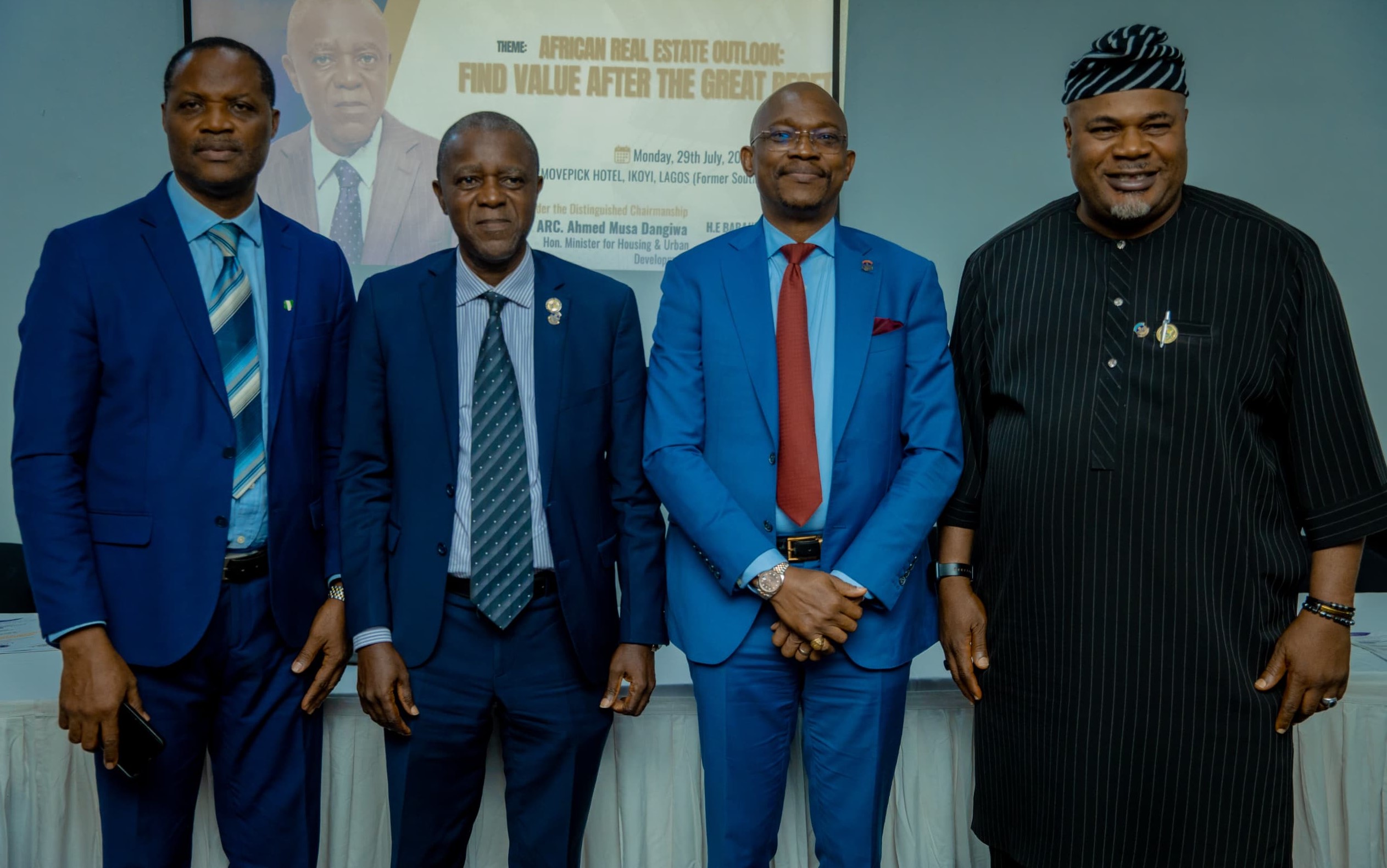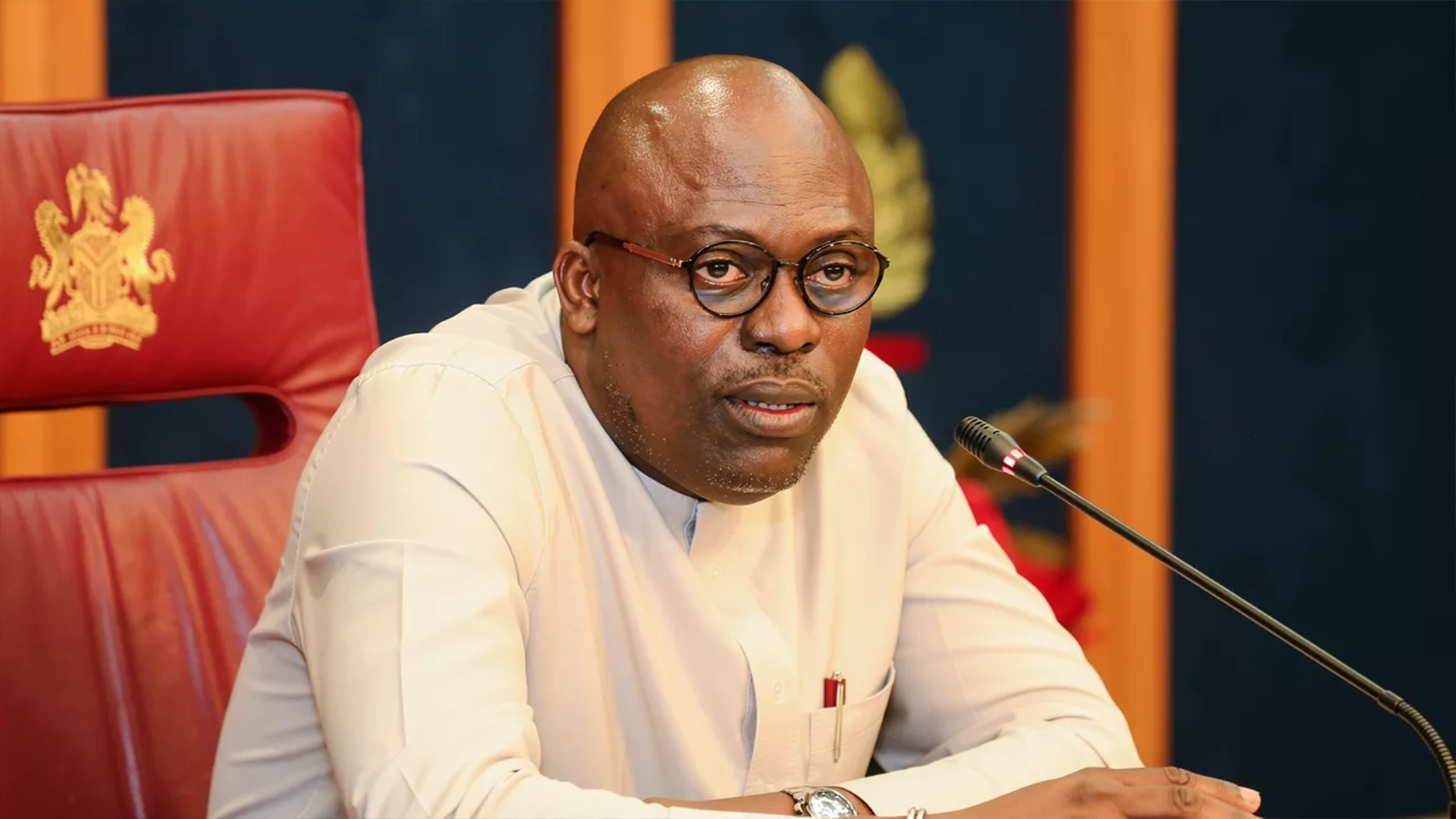
Eggheads in the continent’s property industry have called on practitioners to embrace innovative solutions, foster public-private partnerships, and align with global sustainability goals to unlock the full potential of Africa’s real estate market.
They stated that the great reset presents an opportunity for Africa to leapfrog traditional development models, focusing on sustainability, technology, and inclusivity in real estate development.
The experts spoke at a lecture in honour of the President, African Real Estate Society (AFRES), Dr Kunle Awolaja, in Lagos, where a professor of Housing and Urban Regeneration, University of Lagos, Timothy Nubi, set the tone for discussion with his presentation on ‘African Estate Outlook: Find Value after the Great Reset.’
He explained that the huge market in Africa is already a bet for investors, and should be a marketing tool for wooing foreign investors into Africa.
He called on African leaders to provide the needed economic, political, and social environment to drive the envisaged growth, as well as strengthen weak democratic governments and institutions.
According to him, Africa is emerging as the second-fastest-growing major economy globally this year, and the real estate market would play a catalytic role in driving the envisaged growth of the real estate market, estimated to worth over $100 billion.
The market is expected to grow at a compound yearly growth rate (CAGR) of 5-7 per cent over the next decade.
The real estate sector contributes approximately 10-12 per cent to the Gross Domestic Product (GDP) of several African countries. The key markets are South Africa, Egypt, and Nigeria, while the diverse market includes residential real estate (RRE) and commercial real estate (CRE).
He disclosed that with African population of 1,476,462,909 with 44.7 per cent of the population residing in the urban areas of the countries represents both strengths and weaknesses, depending on how the African political and economic leaders manage the growing African population.
Nubi said there was strong demand in residential and commercial sectors in West Africa, with interest in mixed-use developments and affordable housing in East Africa.
“The lack of affordable housing finance, high costs of urban land and weak tenure security, rising construction costs, and prevalence of slums are major challenges to efforts to alleviate the continent’s housing crisis,” he said.
According to him, housing policy is the single most important factor in Africa’s economic development and needs to be elevated to the highest political level as the rate of slum formation and growth is alarming.
On the state of housing infrastructure in Africa, Nubi noted that every city should provide people with better employment opportunities and quality of life. African cities generally provide neither, while owning a decent house is still an unattainable goal for many African households.
The founding Director, University of Lagos Centre for Housing and Sustainable Development, revealed that there are investment opportunities and gaps in the healthcare infrastructure, taking into consideration of the global average bed density of 2.9 beds per 1,000 population.
“Except Ethiopia and Mauritius, most of the countries fall short of the global average and require a significant investment in healthcare infrastructure. Nigeria, for example, requires 415,000 beds costing over $498 billion.”
He said the identified gap in healthcare infrastructure presents both challenges and opportunities for investors, governments and stakeholders.
According to him, regional institutions like the Economic Community of West African States, the African Union and, the African Development Bank have strong roles to play in entrenching the needed economic growth and development in Africa, while partnerships with World Bank and other multinational institutions should be adopted by the African leaders.
The President, Nigerian Institution of Estate Surveyors and Valuers (NIESV), Mr Victor Alonge, said it was remarkable to see a man dedicated to excellence being honoured for his commitment and development of the profession. He said the society has done a lot to transform the real estate landscape in Africa.
Alonge said NIESV will continue to fulfil its obligation under the affiliation status with the organisation, ensuring proper engagement and collaboration to ensure the real estate opportunities in Nigeria are adequately harnessed for the country’s economic development.
He implored the AFRES leadership to step up efforts in African real estate development, including Nigeria, pledging to create more awareness of the country’s potential in the real estate sector.
Awolaja said the theme challenges members to find value and opportunity in the face of global shifts, adding, “The “Great Reset” has presented the society with unprecedented challenges, and also opened doors to innovation, as well as transformation.
“It is a call to action for all of us to harness our collective expertise, creativity, and resilience to shape a sustainable and prosperous future for African real estate.”
For him, Africa is a green land being is being hindered by pockets of insecurity. He said the continent is the next destination for the real estate market. He cited instances of Luanda, Ghana and Nigeria, where the market is growing.
Awolaja further stated that the countries are becoming attractive to foreigners and attracting huge Foreign Direct Investments. He said the investments are more in the residential and retail market, adding that malls and small retail outlets are springing up almost in all urban areas in the continent. He said the society plans to partner with the African Union to enable professionals to practice in any part of the continent.






